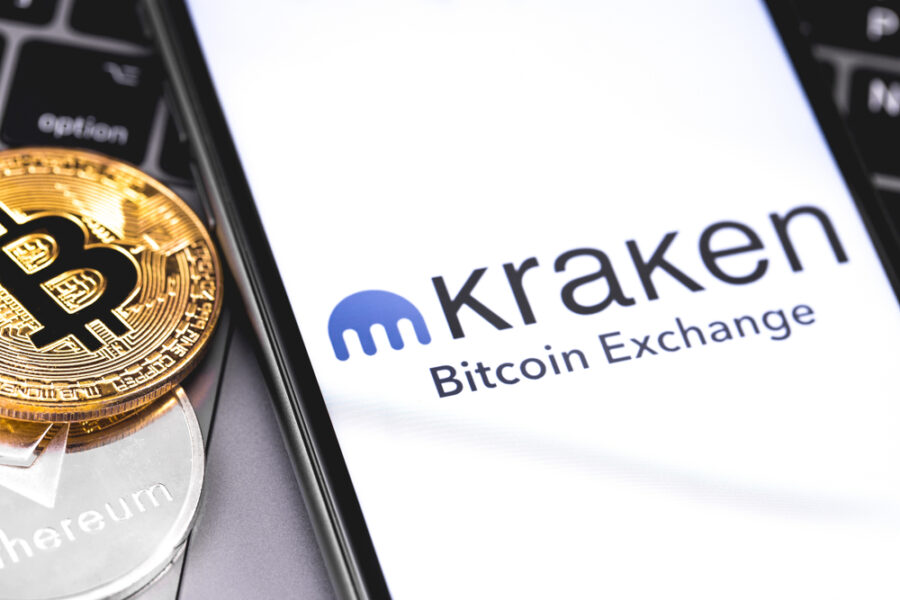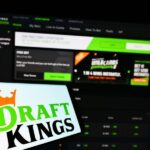Kraken eyes prediction market launch with acquisition of CFTC-licensed Small Exchange

Cryptocurrency exchange Kraken has confirmed its US$100 million acquisition of Commodity Futures Trading Commission-licensed contract market Small Exchange signals an interest in entering the prediction markets space.
Kraken announced the acquisition yesterday, saying it would expand its global trading infrastructure and pave the way for a fully US-native derivatives offering.
Shortly after the announcement, a spokesperson confirmed to COMPLETE iGAMING that the business was interested in the growing prediction market space in the US.
The deal, finalized with online trading provider IG Group, enables Kraken to establish a fully US-native derivatives platform under federal oversight, encompassing spot, futures, and margin trading.
Kraken Co-Chief Executive Arjun Sethi said, “Kraken’s acquisition of a Commodity Futures Trading Commission-regulated designated contract market creates the foundation for a new generation of United States derivatives markets. It is designed for scale, transparency and efficiency.”
The move comes as other companies are increasingly using the Commodity Futures Trading Commission’s licensing framework to enter or expand into prediction markets.
Kalshi has made bold moves into sports event contracts over the course of this year, inviting legal disputes with state regulators, including those in Nevada, New Jersey, and Massachusetts, over whether event contracts constitute sports betting.
A note issued by the Nevada Gaming Control Board on Wednesday clarified that the regulator regards sports event contracts as wagering, even when such contracts are listed on federally regulated exchanges, including those supervised by the Commodity Futures Trading Commission.
Meanwhile, daily fantasy sports operator PrizePicks recently secured National Futures Association approval under its subsidiary, Performance Prediction II, in a bid to launch a predictions offering.
Last month, sports betting exchange RSBIX submitted an application to the Commodity Futures Trading Commission to become a designated contract market, reviving a previous attempt to list sports event contracts.
The new bid underscores the growing appeal of Commodity Futures Trading Commission licenses for firms seeking to develop onshore derivatives and event markets, as well as for crypto-native businesses seeking regulatory legitimacy in the evolving prediction market sector.
Charlotte Capewell brings her passion for storytelling and expertise in writing, researching, and the gambling industry to every article she writes. Her specialties include the US gambling industry, regulator legislation, igaming, and more.
Verticals:
Sectors:
Topics:
Dig Deeper
The Backstory
Momentum builds around federally regulated event contracts
In recent months, mainstream and crypto-native firms have accelerated bids to legitimize and scale prediction markets under federal derivatives rules, testing the line between financial hedging tools and gambling. Kraken set the tone with a US$100 million deal to buy the CFTC-licensed Small Exchange, positioning the crypto exchange to stand up a fully U.S.-native venue spanning spot, futures and margin while explicitly signaling interest in event contracts. The company framed its move as a bid to bring scale and transparency to U.S. derivatives, a message consistent with a broader pivot by market entrants seeking the protections and credibility of CFTC oversight rather than state-by-state gaming approvals. The acquisition, finalized with IG Group, underscores how crypto firms see federal market structure as a path to legitimacy in an evolving sector where financial engineering and sports culture are colliding. Read more on Kraken’s strategy and the licensing pivot in Kraken eyes prediction market launch with acquisition of CFTC-licensed Small Exchange.
Traditional sportsbook operators are probing similar avenues. DraftKings, which withdrew a federal application this spring, is weighing a deal to buy Railbird Exchange, a federally licensed platform, in a potential shortcut to market. While the company has kept talks close, its peers are not standing still. FanDuel has reportedly explored partnership options with Kalshi, a CFTC-regulated exchange that recently drew a US$2 billion valuation amid rapid product expansion and legal friction. These moves reflect a strategic calculus: prediction markets can reach large populations in places where sports wagering remains illegal, including California and Texas, offering growth without the slow march of state licensing. Details on consolidation pressure and crossovers with gaming are in DraftKings mulls acquisition of prediction market Railbird Exchange.
Legal gray zones sharpen the industry’s fault lines
As companies test federal pathways, state regulators are drawing boundaries. Nevada’s gaming regulator clarified it views sports event contracts as wagering even when listed on federally supervised exchanges. That stance mirrors mounting pushback elsewhere, including cease-and-desist orders and lawsuits against Kalshi in several states. The result is an uneven landscape where some products function as futures under federal rules while states insist they are sports bets subject to gaming laws.
The clash escalated when Crypto.com launched a U.S.-only predictions platform offering Super Bowl winner contracts, then kept the product live after the CFTC ordered a suspension pending a legality review. The exchange argued the outgoing commission should not preempt policy under incoming leadership and pointed to perceived inconsistencies with recent federal court rulings and rule proposals. The episode spotlighted a practical risk for platforms and users: product availability can swing with regulatory leadership and litigation posture. The confrontation is detailed in Crypto.com snubs CFTC suspension of Super Bowl futures exchange contracts.
Sports stakeholders are also weighing in. The NBA urged the CFTC to consider integrity risks as markets list more granular contracts. The league drew distinctions between regulated sportsbooks, which answer to state regimes built around sports wagering oversight, and federally supervised prediction venues that sit under a commodities framework with no sports-specific unit. The NBA signaled it is prepared to engage on guardrails if the markets continue, underscoring how the debate is shifting from whether event contracts should exist to how they should be policed. See the policy push in NBA expresses concerns over sports prediction integrity to CFTC.
Capital seeks clarity as product design goes global
Investment and product road maps hinge on regulatory certainty. Kalshi’s valuation jump and the push by multiple firms to secure CFTC permissions reflect investor belief that event contracts can scale under a consistent federal regime. At the same time, Robinhood is mapping a parallel track overseas. The broker has opened talks with the U.K. Financial Conduct Authority and other regulators to slot prediction markets into local frameworks that often treat such products as gambling rather than swaps. The company says it is avoiding sensitive contracts and prioritizing compliance, betting that international growth can diversify revenue as U.S. rules evolve. A recent sell-side report estimated sports betting and event contracts have already generated US$200 million for the firm. More on the expansion calculus in Robinhood eyes overseas expansion for prediction markets.
Back in the U.S., more venues are seeking licenses. A sports betting exchange, RSBIX, reapplied to become a designated contract market, reviving a prior attempt to list sports event contracts. Daily fantasy operator PrizePicks secured National Futures Association approval via a subsidiary as it explores a predictions product. These developments point to a crowded pipeline of platforms aiming to operate under futures rules rather than state gaming codes, a distinction that shapes user access, tax treatment and compliance costs.
Leadership transition at the CFTC raises stakes
The industry’s trajectory is entwined with the CFTC’s leadership and rulemaking agenda. President Donald Trump has nominated Brian Quintenz to return as chair. Quintenz, a former commissioner, sits on Kalshi’s board and holds stock he has pledged to divest if confirmed, drawing scrutiny from lawmakers over conflicts and recusal issues. He has argued that event contracts are part of the market’s evolution and positioned the agency at a turning point as Congress debates expanding its remit over spot crypto commodities and as event hedging tools proliferate. The hearing before the Senate Agriculture Committee on June 10 previewed policy choices that could either consolidate the federal framework for prediction markets or send more questions back to the states.
For details on the nomination context and industry ties, see Kalshi director and CFTC nominee advocates for prediction markets, as well as the Senate Agriculture Committee’s June 10 hearing page and Quintenz’s prepared testimony.
The leadership handoff matters for enforcement tone, product approvals and how the agency defines the boundaries of permissible event contracts. The Crypto.com standoff, for example, unfolded as Chair Rostin Behnam prepared to depart on Jan. 20, raising questions about how an incoming commission would treat similar listings and whether a formal rule will clarify jurisdictional seams with state regulators.
What’s next: federal rules vs. state guardrails
The core question is whether event contracts remain within the CFTC’s futures toolbox or are carved out when they mimic sports wagers. If the commission expands permitted categories and tightens surveillance, federally supervised markets could gain ground, attracting liquidity and institutional flows. That would favor players like Kraken, which now controls a designated contract market through its Small Exchange acquisition, and potential consolidators such as DraftKings if it secures a foothold through Railbird. It could also encourage submissions from venues like RSBIX and embolden partnerships akin to FanDuel’s reported talks with Kalshi.
If states prevail in asserting gambling jurisdiction over sports-related contracts, platforms may face dual compliance burdens or retreat to narrower listings. The NBA’s request for tailored guardrails suggests a compromise path where certain propositions are restricted while season-long or macro outcomes proceed under futures rules. International expansion offers a release valve for companies willing to tailor products to gambling regimes abroad, as Robinhood’s outreach indicates.
Either way, the stakes are significant. For firms, the outcome sets the cost of customer acquisition and market access. For regulators, it defines the perimeter between financial hedging and wagering. For leagues and bettors, it shapes integrity protections and transparency. The industry is lobbying for clarity; the CFTC’s next moves will decide whether prediction markets mature under a single federal scaffold or continue as a patchwork stitched to state gambling law.








